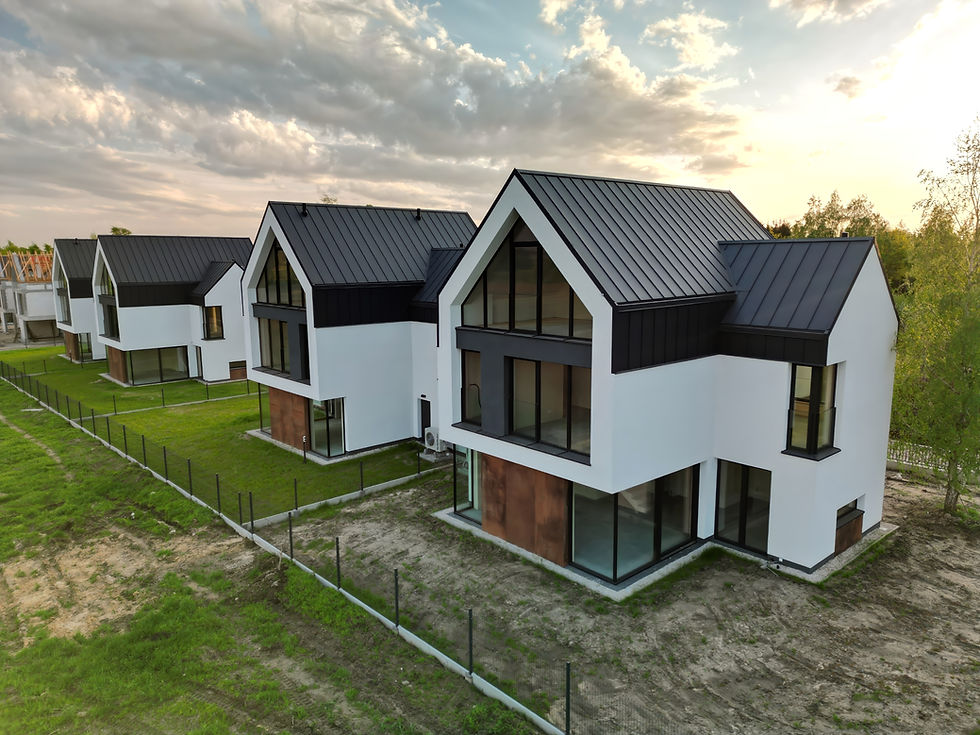Why sustainability matters
Reuse Engineering Forum East Anglia (REFEA) helps drive sustainable design in the built environment. Our civil and structural engineering services support low-carbon construction, resource efficiency, and long-term resilience.

REFEA is a joint initiative by JMS Engineers and GC Robertson, promoting sustainability through smarter reuse and practical design in structural and civil engineering across Suffolk, Norfolk, Cambridgeshire, Essex and the wider East Anglia region.
Construction produces 60% of UK waste and nearly 40% of carbon emissions.
Operational carbon is falling - thanks to renewables. But embodied carbon from materials and construction is rising fast. By 2035, it could account for more than half of built environment emissions.
That’s where REFEA comes in.
We provide the engineering tools, technical services, and real-world guidance needed to reduce embodied carbon through smarter reuse, better design, and practical sustainability.

Guided by six core principles
Reuse First – Retain what works, re-engineer what’s needed.
Design for Disassembly – Enable future reuse from the outset.
Low-Carbon Materials – Specify with embodied carbon in mind.
Early Design Collaboration – The biggest carbon savings start before foundations.
Circular Design Thinking – Whole-life value over one-time solutions.
Integrated SuDS – Drainage that supports ecology and resilience.
Who We Work With
-
Architects & designers
-
Planning consultants
-
Contractors & developers
-
Local authorities & policy teams
-
Clients with carbon goals or ESG priorities
Sustainability Team
Our team of civil and structural engineers brings specialist knowledge in material reuse, low-carbon design, and circular construction strategies.
With a shared commitment to engineering a more sustainable built environment, we collaborate closely with design teams, planners, and contractors to deliver technically sound, environmentally responsible outcomes.
Structural Engineer
Holly Peirson
.png)
Holly brings a strong passion for sustainability and carbon reduction to every project. She supports design teams throughout the process, helping to integrate reclaimed materials into safe, compliant, and low-carbon structural solutions.
Structural Engineer
George Williams
_edited.jpg)
George brings fresh energy and a practical approach to sustainable engineering projects across East Anglia and the UK. He supports reuse assessments and the structural design of reclaimed materials, helping design teams cut carbon while achieving safe, reliable structures.
Civil Engineer
Mathan Rengasamy
_edited.jpg)
Mathan delivers low-impact civil engineering designs that support material reuse and sustainable construction. His expertise includes sustainable drainage systems (SuDS), foundations, and site infrastructure - all aligned with circular economy principles and climate-resilient design.
We assess the viability of retaining or repurposing existing structural elements, helping reduce demolition waste and embodied carbon.
We design integrated SuDS strategies that manage surface water naturally, reduce flood risk, and support biodiversity.
Our engineers design structures using low-carbon materials, optimised steel/concrete usage, and efficient detailing to minimise environmental impact.
We provide structural and civil input into retrofit schemes - ensuring existing assets can be adapted and extended rather than replaced.
We work alongside design teams to evaluate carbon impacts across the project lifecycle and propose meaningful reductions at the design stage.
Sustainable Design Services
Our civil and structural engineering services support low-carbon construction, resource efficiency, and long-term resilience.
Focus Areas
REFEA’s work is guided by six core principles that drive sustainable structural and civil engineering - turning practical design decisions into low-carbon outcomes across East Anglia.
Reuse First
Prioritising existing structures and materials to reduce waste and embodied carbon.

Early Design Collaboration
Involving engineers early to embed sustainability from concept to construction.

Low-Carbon Materials
Specifying materials with lower embodied carbon and designing for material efficiency.

Circular Design Thinking
Designing for adaptability, longevity, and future reuse from the outset.
%20Strategy%20(3)-min.png)
Integrated Drainage Solutions
Embedding SuDS into civil engineering for sustainable, climate-resilient developments.

Practical Sustainability
Delivering buildable, cost-conscious solutions that meet real environmental targets.

Sustainable
structures

east anglia
As structural engineers, we have a unique opportunity to influence how the built environment responds to the climate crisis. Reuse isn't just about saving materials - it's about rethinking value, preserving what works, and designing with long-term resilience in mind. Through REFEA, we hope to make reuse a more practical and achievable option on projects across East Anglia by sharing knowledge, highlighting viable approaches, and supporting early-stage design decisions.
Mark Weston
Structural Engineer, JMS Engineers
Knowledge is key to sustainable change. Explore our latest insights and technical resources:
.png)
Path to a Low-Carbon Built Environment
The built environment contributes nearly 40% of global carbon emissions, much of it through construction and materials. In East Anglia, reducing embodied carbon is critical to meeting sustainability goals. By reusing structures, designing efficiently, and integrating low-impact civil solutions, we can reshape how the region builds - and lead the way towards a net zero future.
%20Strategy%20(7).png)










